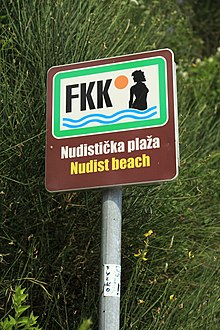(Editor’s note: This post about moving to Germany is the fifth in a series looking at the best countries in Europe for American expats. You can read the introductory post here.)
A few months ago, Bloomberg reporter Alice Kantor wrote that an increasing number of Americans are “driven across the Atlantic by the rising cost of living, inflated house prices, a surging dollar and political rancor at home.”
We have issues with that assumption, but the data is in, and more Americans are drifting back to the Old World.
Here are a few reasons why Germany might just be the country for you:
• Great roads and amazing public transportation
• Centrally located within Europe
• A powerhouse economy
• A big country with both large cities and small villages, hills and lakes, castles and rivers, snow and sun, and a slower pace of life than the United States.
Moreover, German is easier to pronounce for Americans (English speakers) than say French or Dutch, and lots of people speak English, too. But aside from all of this, I think it is important to consider a few other things.
FOLLOWING THE RULES, LETTING LOOSE AND A LITTLE BIT OF HISTORY
Germans have an interesting dichotomy of following the rules, being rigid and precise, and yet at specific times and places, letting loose.
For example, they may drink at all hours of the day, but then they don’t drink and drive. They may walk around in the nude at the beach, but then they don’t cross the street when the walk sign is red. Why don’t they cross the street when the walk sign is red? Because not only is it against the law, but you are also supposed to be a good role model for the children!
FOLLOWING THE RULES
Since there are lots of rules in Germany and they are enforced, if you are not a rule follower I wouldn’t move to Germany.
Here are three instances of rules that might differ from your own country’s:
- Rules of the road: pay attention to speed limits andobserve the right of way.
- Rules for garbage and recycling: take care to note what goes in each container–bio, brown vs. clear bottles, etc. There might be many more categories than you are used to.
- Rules for where you live: there might be a rule about no loud noises, such as, vacuuming from 1 p.m. to 3 p.m. on Sundays.
HAVING FUN AND LETTING LOOSE
Conversely, Germans like to relax and have fun in many ways. They like to go hiking on the weekends, let loose on the Autobahn, go to festivals, enjoy beer and wine, and unwind at the beach or thermal baths, sometimes in the nude.
If this sounds good, then Germany might be the country for you.

WANDERN (HIKING)
Germany has a lot of beautiful places to hike. There are castles, hill tops with vineyards, many rivers to walk along, and the lovely Black Forest. Places I have enjoyed hiking around were Burg Eltz, Heidelberg Castle, the Rheingau (Rhine District), and Freiburg and surroundings.
DRIVING ON THE AUTOBAHN
If you really want to go fast on the Autobahn, you need to drive on a section where there are at least three lanes going in each direction. Otherwise, if there are only two lanes – because the left lane is the passing lane and there will likely always be someone driving faster than you – you will end up in the right lane part of the time and may get stuck behind a slowpoke or a cabbage truck and not be able to go very fast.
BEING NAKED IN THE SPA AND OTHER PLACES

Being naked is another way Germans express themselves and let loose. It is called Freikörperkultur (FKK), which means culture of the free body (literally!), and if you see it on a sign outside it warns of a nude beach or park or spa. The one time I did go to a thermal bath, which I was told about by a male colleague – he told me to let him know if I was going. Therefore, I thought he wanted to go with me. It turns out he wanted to make sure he didn’t go when I went because he was not German!
Also, if you go to the doctor for a physical exam, they won’t give you a gown, like they do in the U.S. They will examine you in the nude.
A LITTLE BIT OF HISTORY
One of the things I found fascinating about living in Germany was all of the history, and I’m not just talking about World War II, the Cold War, and the Berlin Wall coming down, but the hundreds and thousands of years of history from before that.
WILL YOU BE WELCOME?
Some Germans may be very welcoming, and some may not. I had a few German friends whose relatives had married American soldiers, so we had a bond over that. Regarding the United Kingdom, many Germans have studied English or done business in Britain, so they may feel a connection with you and be sorry about Brexit and its ramifications.
WORLD WAR II AND BEYOND
Depending on their age, individuals may remember your country’s involvement in World War II, the Cold War or more recent wars. As you might recall, after World War II, the U.S. was one of four occupiers along with France, England, and Russia, who partitioned Germany and the capital of Berlin into four zones.
Therefore, older people may be grateful because you were a liberator or unhappy because you were an occupier. Middle-aged people may have been glad to have had your help against the Soviet Union before the Berlin Wall came down in 1989, and now younger people might be glad there are still some U.S. bases in Germany given the current situation with Russia and other international threats.
YANKEE GO HOME!
On the other hand, at times, you or your country’s military presence or policies might not always be appreciated, and you may find yourself at a parade or a protest where people are demonstrating against you or telling you to go home!
BEING ACCEPTED
To figure out if you will be well received in Germany, think about the following:
• Do you appreciate immigrants in your country?
• What do you appreciate about them?
• What annoys you about them?
• Maybe you appreciate the work they do or the food they make?
• Perhaps you don’t like them if you think they are taking jobs or opportunities away from you?
It will likely be the same for you when you are abroad.
I always think it is easier to blend in in a big city rather than in a small town. And just like anything, your being welcome or not can depend on your personality or the ebb and flow of the country’s economics or other variables.
––––––––––
See our posts on moving to the Netherlands here; to Greece here; to Italy here; Spain here and to France here.
Mary Porcella is a Europhile who has lived in Germany, Norway, Italy, and the U.S. She is a writer, editor, and photographer. She loves seeing new places, returning to old haunts, and meeting up with family and friends. As of today, her travels have taken her to 20 European countries, and she hopes to visit the rest.















